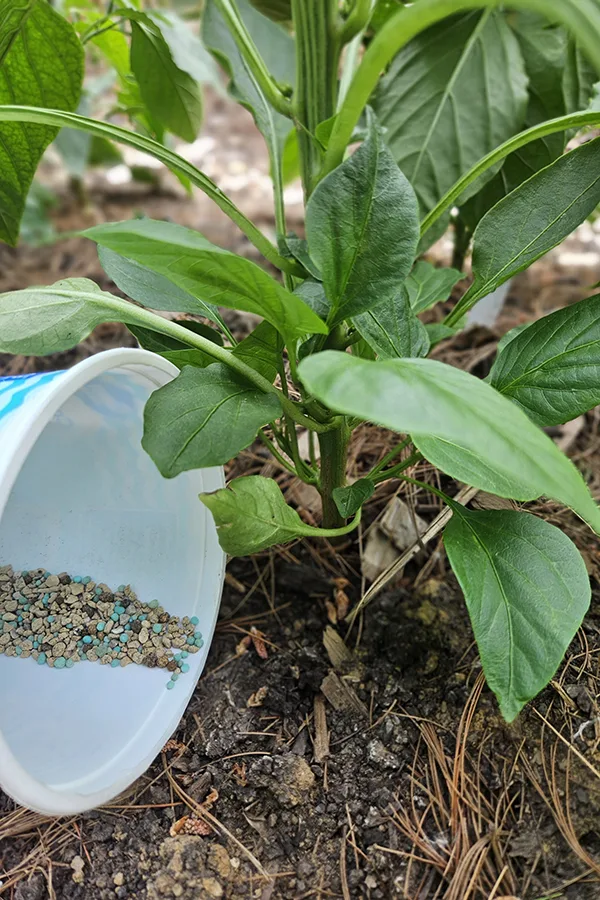How Plant Foods Play a Vital Duty in Growing Healthy and Abundant Pepper Crops
Fertilizers serve as the foundation of effective pepper growing, supplying a strategic method to nourishing the dirt and promoting ideal plant development. The detailed dance in between essential nutrients and the pepper plants' physical processes emphasizes the essential function that fertilizers play in making certain an abundant harvest.
Importance of Nutrient-Rich Plant Foods
The use of nutrient-rich fertilizers plays a crucial function in boosting the efficiency and quality of pepper plants in modern farming practices. Pepper plants call for a balanced mix of necessary nutrients to thrive and generate high yields of top quality fruits. Potassium, phosphorus, and nitrogen are main nutrients that are crucial for the development and development of pepper plants. Nitrogen aids in leafed environment-friendly growth and general plant vigor, phosphorus supports origin advancement and blossom production, while potassium adds to disease resistance and fruit high quality.
Inadequate levels of these nutrients can result in stunted development, minimized returns, and susceptibility to illness (best fertilizers for peppers). Nutrient-rich plant foods give a targeted solution to guarantee that pepper plants get the needed elements for optimum development and efficiency. Furthermore, these fertilizers assist improve soil fertility over time, creating a lasting setting for lasting pepper growing
Enhancing Plant Growth and Development
To optimize plant development and development in pepper crops, calculated application of nutrient-rich plant foods is important. Plant foods play a vital function in enhancing the total health and performance of pepper plants by offering them with crucial nutrients that may be doing not have in the soil.
Iron, for instance, is needed for chlorophyll production, which is necessary for photosynthesis and general plant development. Zinc plays a crucial function in enzyme task and hormone synthesis, affecting plant development and growth at a cellular degree.

Boosting Illness Resistance With Plant Foods
By strategically including targeted fertilizers, farmers can strengthen the disease resistance of pepper plants, ensuring ideal plant wellness and productivity. Fertilizers having important nutrients like phosphorus, nitrogen, and potassium play a critical role in strengthening pepper plants' body immune systems, making them a lot more resistant to different illness. Nitrogen, for circumstances, help in the manufacturing of healthy proteins that are vital for plant defense reaction. Phosphorus contributes to root development, allowing plants to better take in nutrients and water, therefore improving their capability to ward off illness. Potassium controls processes that improve overall plant health and wellness, making peppers much more robust against pathogens.

Taking Full Advantage Of Pepper Yield Via Fertilizing
Utilizing a well balanced fertilizing method is key to attaining maximum pepper return and making sure ideal plant efficiency. By providing peppers with the right nutrients at the appropriate time, farmers can substantially enhance their return capacity. Potassium, nitrogen, and phosphorus are necessary elements for pepper development, with nitrogen aiding in fallen leave and stem advancement, phosphorus sustaining root development and blossom formation, and potassium promoting total plant health.
To take full advantage of pepper yield, it is critical to carry out dirt tests to identify existing vitamins and mineral degrees and determine any shortages that need to be addressed. Based upon these outcomes, farmers can establish a tailored fertilization plan that fulfills the details requirements of their pepper crops. Furthermore, correct fertilization techniques such as split applications throughout the expanding season can make sure continuous vitamins and mineral schedule for the plants.

Lasting Fertilizer Practices for Peppers
In thinking about lasting plant food practices visit here for peppers, it is necessary to concentrate on long-term soil health and wellness and ecological stewardship together with making the most of crop efficiency. Lasting plant food techniques intend to maintain or improve soil fertility while reducing negative ecological influences. One vital strategy is using natural plant foods such as garden compost, manure, or cover plants, which not just provide important nutrients to the peppers however likewise add to dirt structure and microbial activity. These organic choices assist develop natural issue in the dirt, boosting its capacity to preserve water and nutrients, thereby supporting long-lasting crop health and durability.
In addition, accuracy agriculture strategies, such as dirt testing and targeted nutrient applications, can help maximize plant food use, ensuring that peppers obtain the nutrients they need without excess runoff right into rivers. This not just benefits the environment by decreasing contamination however likewise saves this post expenses for farmers by decreasing waste. By adopting sustainable plant food practices, pepper cultivators can secure the health and wellness of their crops, dirt, and surrounding communities for future generations.
Conclusion
To conclude, plant foods are vital for cultivating plentiful and healthy and balanced pepper crops. best fertilizers for peppers. They give required nutrients for plant development and development, increase disease resistance, and maximize return. By implementing sustainable plant food practices, farmers can make sure the long-term health official website and wellness of their pepper plants and add to a much more reliable and environmentally-friendly agricultural system
The detailed dance between essential nutrients and the pepper plants' physical procedures underscores the critical duty that fertilizers play in making certain an abundant harvest.To enhance plant development and development in pepper crops, calculated application of nutrient-rich plant foods is essential. Fertilizers play a critical role in enhancing the general health and wellness and performance of pepper plants by giving them with essential nutrients that may be lacking in the soil.By tactically integrating targeted plant foods, farmers can strengthen the condition resistance of pepper plants, ensuring optimal plant health and productivity. Fertilizers including vital nutrients like nitrogen, potassium, and phosphorus play a vital function in enhancing pepper plants' immune systems, making them a lot more durable to different diseases.